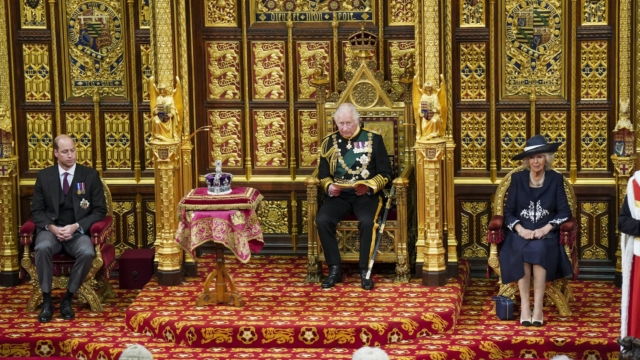Attached a copy of the lobby pack that supports the Queen’s speech. Here are some…
DCMS Q&A
DCMS has provided the following Q&A in response to some of the questions that have been sent through.
Guidance updates Q&As
- Can the outdoor elements of botanical gardens be open, even if the indoor parts (hot houses etc) are closed?
- Yes. Indoor attractions at botanical gardens, heritage homes and landmarks must close, but outdoor grounds of these premises can stay open.
- What does it mean for people already on holiday?
A. At the time that restrictions are brought in, if people are currently on holiday and it is not reasonable for them to curtail their stay, they may finish their holiday as planned; the duration of stay should only be as long as reasonably necessary and they should return home as soon as practical. People must comply with the ‘stay at home’ requirements and make every effort to reduce socialising indoors outside of their household whilst in holiday accommodation in the meantime.
- If lockdown starts at 1am Thursday what is the situation with guests already booked to stay and can hotels serve breakfast to guests leaving on Thursday morning?
A. Guests are allowed to finish their bookings if they were started before Thursday; the duration of stay should only be as long as reasonably necessary and they should return home as soon as it is practical to do so. They will need to comply with the ‘stay at home’ requirements in their holiday accommodation. Restaurants, dining rooms and bars in hotels will need to close from Thursday therefore breakfast in the hotel restaurant cannot be served, but room service is permissible.
- What purposes can hotels and accommodation providers remain open for?
- Overnight stays and holidays away from primary residences will not be allowed. This includes staying in a second home or caravan, or staying with anyone you do not live with or are in a support bubble with. Guest accommodation providers such as hotels, B&Bs and caravan parks may remain open for the specific reasons set out in law, where guests:
- Are unable to return to their main residence
- Use that accommodation as their main residence
- Need accommodation while moving house or attending a funeral
- Need to self-isolate as required by law
- Need accommodation for the purposes of their work, or children who need accommodation for the purposes of education
- Are elite athletes, their coach or (in the case of an elite athlete who is a child), the parent of an elite athlete, and need accommodation for the purposes of training or competition
- Are currently in that accommodation at the time when national restrictions come into force.
- Are visiting from abroad on holiday or for work purposes
- Are being provided accommodation to relieve homelessness
Accommodation providers may keep their business open to provide accommodation to vulnerable groups including the homeless, to host blood donation sessions, or for any purpose requested by the Secretary of State, or a local authority.
Accommodation providers are also encouraged to work cooperatively with Local Authorities to provide accommodation to vulnerable groups including the homeless during this period of national restrictions.
- What is the definition of “work” as a reason for stays in B&B or hotels?
A. Anyone who needs accommodation for the purposes of their work may stay in guest accommodation. There is no legal definition of ‘work’ i.e. no restriction to only allow key workers as there was during the initial national lockdown.
- What are accommodation providers meant to do to “validate” whether a stay is for leisure or work? We cannot be expected to police the reason for a stay.
A. Accommodation providers should take all reasonable steps to encourage guests to adhere to government restrictions, including informing guests of restrictions when taking bookings and communicating to all customers, including those with existing bookings, reminding them not to travel unless it is essential (such as for work purposes or attending a funeral). Enforcement of the law remains a matter for the police and Local Authorities.
- Can alcohol be served as part of hotel room service, and if so will it need to be served as part of a meal?
- Food and/or drink including alcohol can be provided through room service as long as it is ordered by phone or online.
- Can hotel lounges and lobbies stay open?
- Communal spaces such as lounges or lobbies may remain open to guests but no food or drink should be served in these spaces, people should be encouraged not to gather and social distancing should be observed.
- Are business meetings for up to 30 people still permitted?
- Business meetings and events are advised against, but may take place with up to a total of 30 people if reasonably necessary – for example for the purposes of work that cannot be done at home – if social distancing can be maintained and the venue can demonstrate it has followed the COVID-19 guidance. Event spaces can be used for reasons permitted by law, including for education and training purposes where reasonably necessary.
- Can weddings take place?
- Weddings and civil partnership ceremonies will not be permitted to take place except where one of those getting married is seriously ill and not expected to recover (‘deathbed wedding’). These weddings are limited to 6 people.
- Can anyone be furloughed or just people who have been furloughed previously. This is particularly an issue where businesses have recruited new staff?
A. All employers with a UK bank account and UK PAYE schemes can claim the grant. Neither the employer nor the employee needs to have previously used the CJRS.


